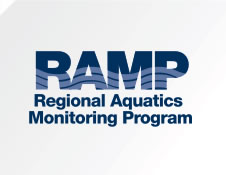Canadian Environmental Protection Act (CEPA) (1999)
CEPA is an important federal component of the environmental legislative framework in Canada. The Act depends on cooperation from federal, provincial, territorial and Aboriginal governments. The Act is administered by both the Minister of the Environment and the Minister of Health.
The most recently updated version of CEPA came into force March 31, 2000 and is described as "an Act respecting pollution prevention and the protection of the environment and human health in order to contribute to sustainable development" (Environment Canada, 2006a). The Act covers a wide range of pollution issues including toxic and harmful substances, fuels, emissions and marine pollution.
The guiding principles of CEPA are:
- Sustainable Development
- Pollution Prevention
- Virtual Elimination
- Ecosystem Approach
- Precautionary Principle
- Intergovernmental Cooperation
- National Standards
- Polluter Pays Principle
- Science-based Decision Making
Because CEPA focuses on emissions and fuels, it is directly concerned with monitoring pollution in oil sands development. Many of the Act's objectives are complemented by other federal Acts such as the Fisheries Act, the Canada Waters Act, the Wildlife Act and the Migratory Birds Convention Act.








